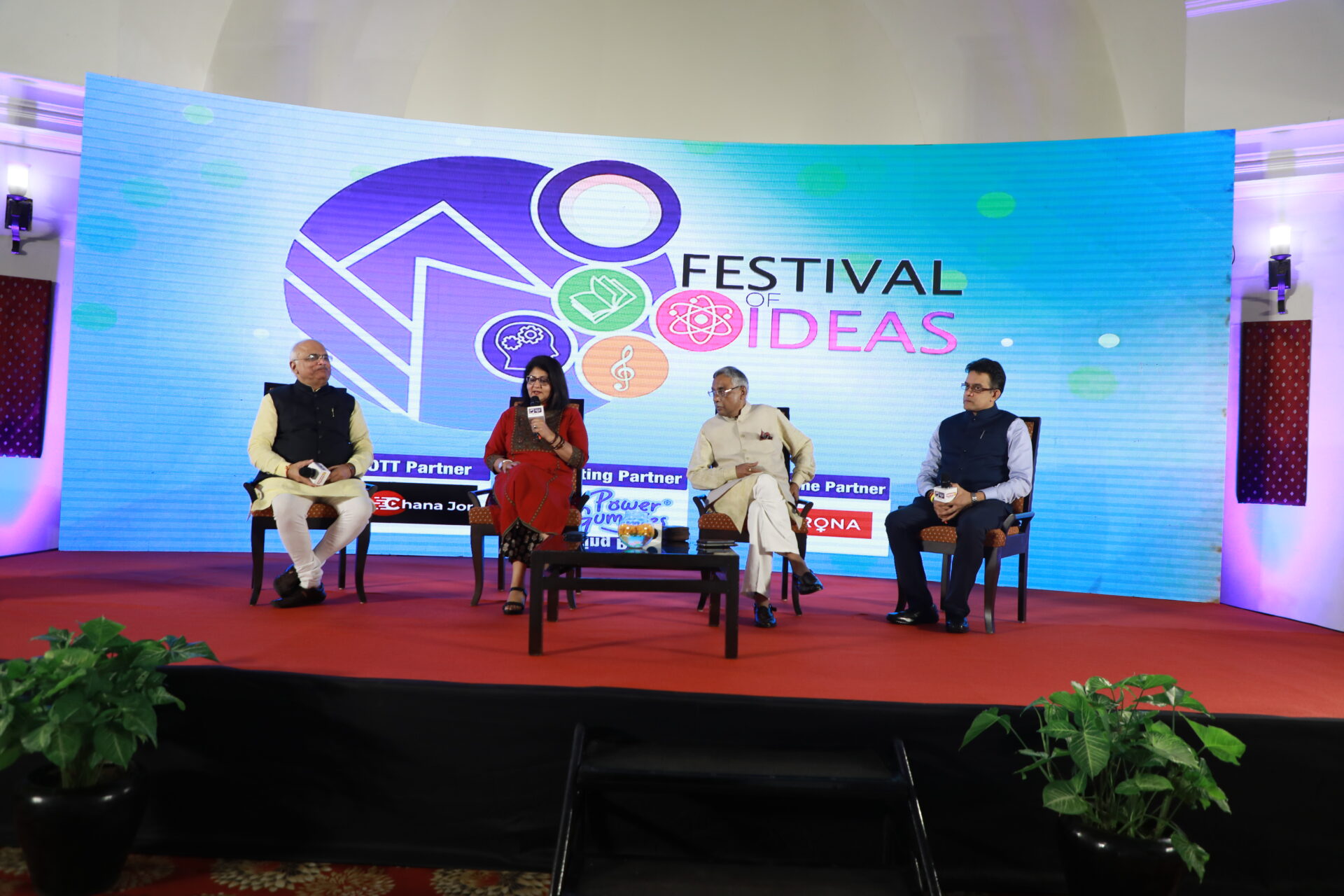New Delhi
The Festival of Ideas, a two-day event held in New Delhi on 24-25 August, brought together leading thinkers and experts from a wide range of fields to discuss some of the most pressing issues facing the nation and the world today.
The two-day thought-provoking discussions, organised by NewsX, The Sunday Guardian and India News that are a part of the iTV Network, covered a wide range of topics, including politics, defence, economy, science, films, books, influencers, India’s soft power, faith and Hinduism.
In the political sphere, the 2024 Lok Sabha elections and the Opposition’s alliance to challenge Prime Minister Narendra Modi dominated the debate. While Rahul Gandhi, the relevance of his family and his leadership style figured prominently. Author, Dr Aishwarya Pandit Sharma cautioned the Congress against drifting around buzzwords like “evolution of Rahul Gandhi” as the issue was of interest only to his party. She also highlighted Rahul’s failure to understand the situation on the ground, which has changed drastically. “The Congress is in denial about its problems,” she said, underlining the fact that the party has to understand that its cadre has seized to exit and it needs to be revived.
The opening day of the two-day event, offered opportunities to national politicians like Akhilesh Yadav, former Uttar Pradesh Chief Minister and Samajwadi Party supremo, to share his and the Opposition bloc I.N.D.I.A’s game plan for the big fight against Prime Minister Narendra Modi and the NDA. Yadav was candid in indirectly admitting that he was one of the young leaders who could be considered to be the Prime Minister if the Opposition alliance won the parliamentary elections in 2024.
Two psephologists, Sanjay Kumar, co-director, Lokniti, CSDS, and Yashwant Deshmukh, founder editor, C-Voter, said, going by the current scenario there was very little chance of Prime Minister Narendra Modi not returning to power in 2024.
Thinkers like Dr Sanjaya Baru, Neeja Chowdhury, Rasheed Kidwai and Suhel Seth also shared insights into the behind-the-scene actions in the power corridors. Their session on “How Leaders Decide”, also saw a quick poll on who they thought was the best PM in the country ever. They also discussed the chances of PM Modi occupying the seat again and whether Congress leader Rahul Gandhi was ready for the top post.
In a session on “RSS From The Outside” Walter K. Andersen, American academic and author, took on questions on how the organisation could tackle public ignorance about it. “RSS affiliate groups need to interact more with society… it should work to ensure that people are not ashamed of their culture and are proud of what they have achieved.”
The academic also suggested that RSS should play a bigger role as a mediation institution and make its autonomous affiliates more effective for the larger national good.
From India’s achievements as the G20 host nation, China’s economic aggression and India’s Pakistan policy, the range of foreign affairs issues discussed at the event was striking. As Prof Madhav Nalapat, Editorial Director of The Sunday Guardian and Ambassador Gautam Bambawale put it, the biggest takeaway from India’s G20 presidency has been PM Modi’s success in turning the grouping into an “action-oriented platform”, with a rightful place for raising the voice of the Global South.
On the defence front, there was talk of the need for India to strengthen its military capabilities in the face of growing threats from China and Pakistan. The economy was also a major focus, with speakers discussing the need for reforms to boost growth and create jobs, reduce the gap between the Indian and the Chinese economies and further strengthen financial inclusion.
The film industry was represented by directors, actors, and producers, who shared their insights on the changing landscape of cinema. In the book world, authors discussed the challenges and rewards of writing, as well as the challenges posed by generative AI to the printed word. And on the topic of influencers, there was debate about the role they play in shaping public opinion, while they make good money.
On films, speakers said that the Indian film industry was undergoing a period of change. They welcomed the rise of new voices and stories, but also warned against the dangers of commercialisation. On influencers, speakers said that influencers have a responsibility to use their platform for good. They called for more transparency and accountability from influencers.
The Festival of Ideas also featured a session on Hinduism, which explored the religion’s rich history and traditions. Speakers discussed the importance of tolerance and understanding in a diverse society. Discussions on “India as a cultural superpower” added to the discourse on religion and its significance in the contemporary world. The soft power game’s persuasive aspects were reflected upon by author Ashwin Sanghi.
Overall, the Festival of Ideas was a stimulating event that provided a platform for open and honest discussion on some of the most important issues facing the nation today.

